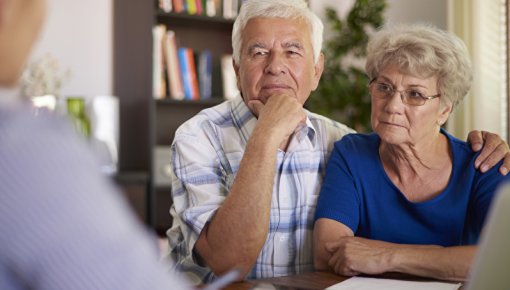As a result of the disease and the related treatment, many women lose sexual desire, at least for some time. Sexual needs often have a lower priority due to a number of different factors, including pain and physical limitations, tiredness and exhaustion, changes in how your body feels to you, and emotional stress. During this time, it's not uncommon for men to be afraid that their own sexual needs will put too much additional pressure on their partner.
What’s more, the cancer and treatment affect key aspects of a woman's femininity: Surgery may cause scarring or result in the loss of one or both breasts. Hormone therapy or chemotherapy may lead to infertility or menopause-like hormonal changes before menopause. Many women struggle with this and ask themselves whether they're still desirable or attractive.
You might also lose sexual desire yourself for a while – perhaps because the illness, the changes in your life, and the worries about your partner are affecting you so much. It may then be important to tell her how you feel and to explain that it isn’t because of her, but because of the circumstances.
It doesn't necessarily have to be a problem if sexuality ends up not playing a major role in your relationship for some time. As long as you feel close as a couple and accept that the breast cancer has changed this aspect of your relationship, too, there's no reason to worry. Physical contact and tenderness do remain important and pleasant for most women, though. Over time, many couples manage to accept the changes brought about by the cancer and can rekindle their passion. One way to maintain a sexual relationship is to stroke and massage each other and be tender, even if sexual intercourse isn't possible or wanted.
Many couples already found it difficult to talk with each other about their sex life before the cancer entered their lives. If you're having difficulties too and you feel that the lack of sexual intimacy is harming your relationship, it might still be helpful to try to talk openly with each other about your needs, fears and feelings – and to take your time. If the two of you can’t find a solution on your own, you can see a doctor or (specialized cancer) therapist. Talking with others in a support group is also an option.

